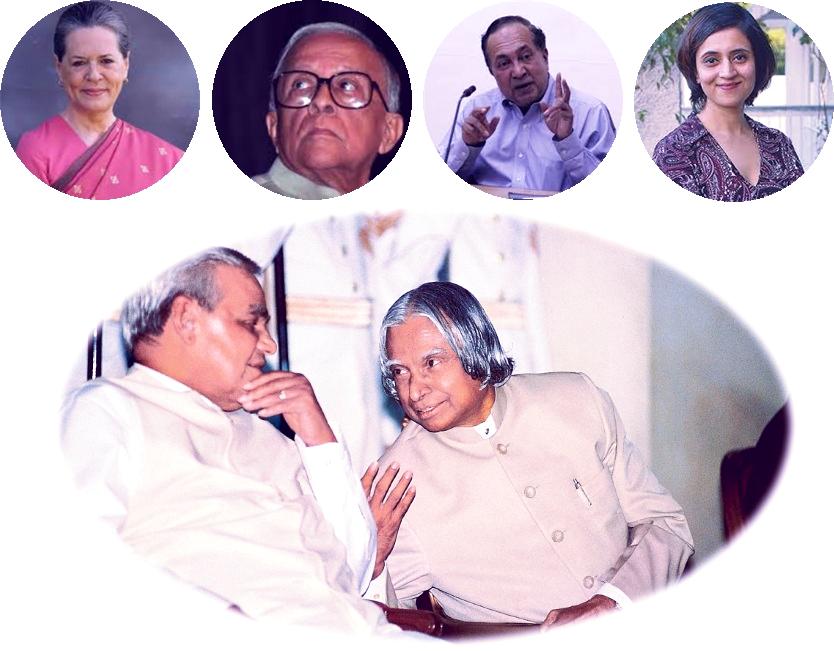On 11th May 1998, India, under Atal Bihari Vajpayee, conducted second nuclear tests at Pokhran in Rajasthan. Today, India is celebrating 20 years of the Pokhran tests. To commemorate this historical event, 11th May is recognized as National Technology Day. Pokhran-II, codenamed Operation Shakti, consisted of five detonations, of which only the first one was a fusion device and the other four were fission devices. With the tests, India became the sixth nuclear country. It was a great scientific achievement for India and a boon to India’s security. Almost immediately, India attracted condemnation and economic sanctions from many nations. The leftist Indian media, as usual, soon followed suit and was quick to denounce and denigrate the achievement.
https://twitter.com/Abhina_Prakash/status/994803964716740608
The nuclear bomb was termed as Hindu-Bomb by the leftist media. “Pokhran-II blasts gave rise to jingoism and hysteria”, said the then Communist Chief Minister of West Bengal, Jyoti Basu. Sonia Gandhi stated her position against the nuclear tests, saying that, “Real strength lies in restraint, not in the display of Shakti.”
N. Ram, Chairman of The Hindu Publishing Group, chimed in as well, “The adventure of conducting the nuclear explosions and rushing to declare India a full-fledged nuclear weapons state has turned out to be an akratic misadventure, a sort of riding the tiger.”
The controversial journalist, Sagarika Ghose, has called APJ Abdul Kalam as ‘Bomb Daddy’ because he was the one who had supervised the Pokhran-II explosions as the Chief of the Defence Research and Development organization (DRDO).
Contrary to criticism by the so-called intelligentsia, rest of the Indian society celebrated the successful test of Pokhran-II with great euphoria. Atal Bihari and Abdul Kalam gained huge popularity in the country. Pokhran was of great importance for Atal Bihari Vajpayee. In an interview he stated, “The greatest meaning of these tests is that they have given India Shakti , they have given India strength and they have given India self-confidence.” For Vajpayee, Nuclear weapons symbolised security, power and pride, which as a staunch oppositional Nationalist he desired for ‘righting the wrongs that had been done to Hindus over centuries.’
As the history of last 20 years demonstrates, Pokhran-II was the need of the hour and was done at the right time. In 1998, Pakistan was also developing its nuclear capabilities and was increasing its proxy terror fronts in India. 17 days after Pokhran-II, Pakistan carried out its own Nuclear explosion test, Chagai Nuclear explosions. Conducting a successful nuclear test at that time gave India a strategic advantage over both the hostile neighbouring countries. But experts opine that Pokhran-II test was more intended to counter china’s growing influence and power. India’s Defense Minister, George Fernandes had declared China and not Pakistan as enemy Number One and stated that the test was important to counter-balance China.
Homi J. Bhabha, father of Indian Nuclear Program was very vocal about nuclear aspirations. He publicly stated that “Nuclear weapons coupled with an adequate delivery system can enable a State to destroy more or less totally the cities, industry, and all-important targets in another State. It is then largely irrelevant whether the State so attacked has greater destructive power at its command. With the help of nuclear weapons, therefore, a State can acquire what we may call a position of absolute deterrence even against another having a many times greater destructive power under its control.”
Twenty years after the Pokhran-II, now critics of Pokhran have been proven comprehensively wrong on all fronts. At the time of the nuclear tests critics said ‘India is doomed by the Boom’ but India’s growing stature in International forums and its acceptability among the existing nuclear powers has become a case study for responsible nuclear proliferation and it goes on to prove that the naysayers of 1998 nuclear tests were wrong. Today, India has civil nuclear cooperation with USA, France and Russia. India is full partner in International Thermonuclear Experimental Reactor (ITER). Contrary to erstwhile doomsday predictions, the 1998 Pokhran nuclear tests proved to be India’s entry into the International arena with the stature, respectability and power it deserves.
